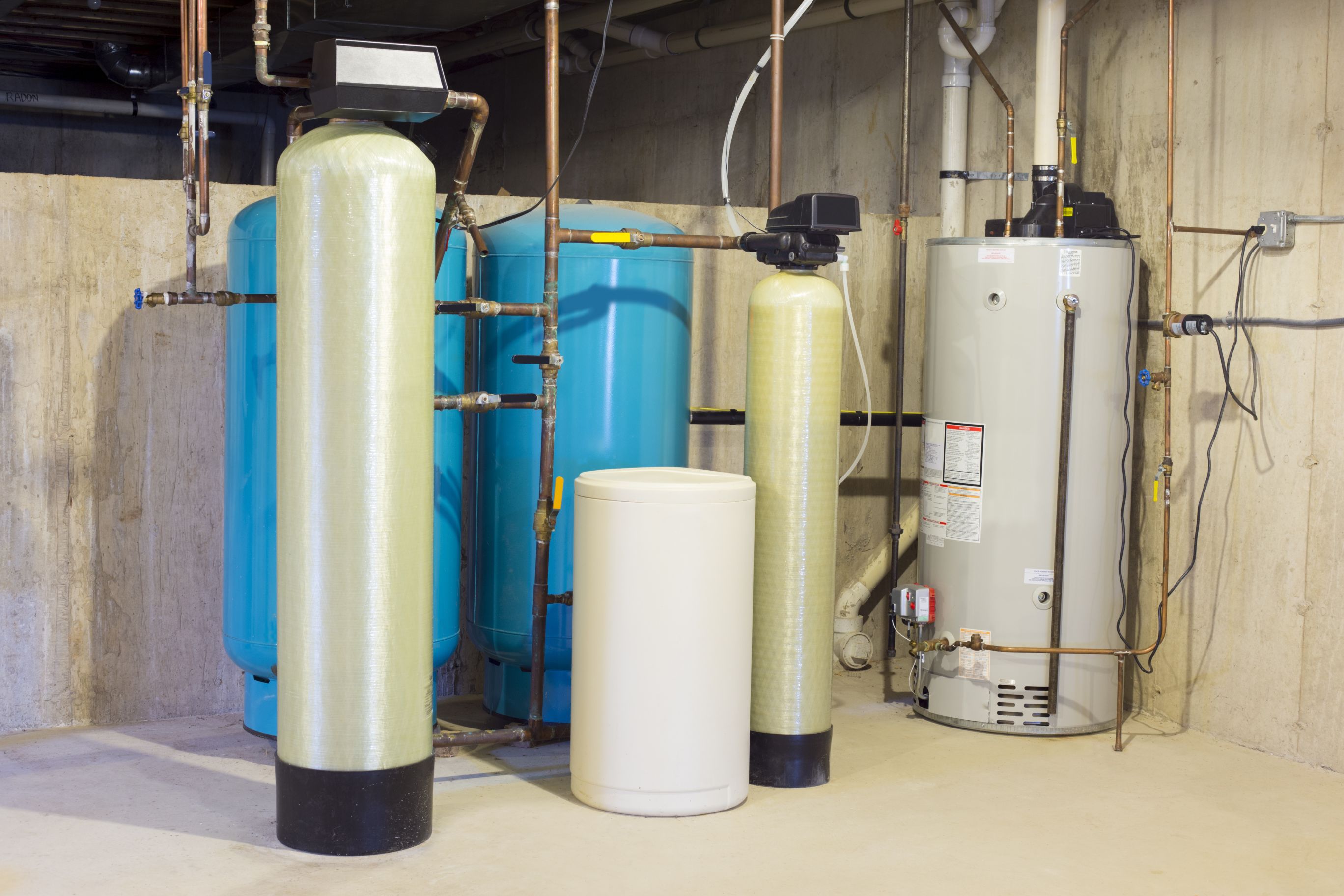Water Softeners Made Simple
What can you do with water that dries out the skin and causes frequent repairs due to build up? First, hard water may be the cause. If so then, the solution may be to buy a softener. Water softeners reduce hard water and minimizes mineral build up.
Exactly what is hard water? Hard water is a build up of dissolved calcium and magnesium in water. Hard water also produces scale. That’s minerals that settle out of the water and deposit on the sides of pipes and appliances. It’s one of the factors contributing to build up in hot water heaters and frequent repairs. A water softener is designed to remedy hard water and its effects. The need to buy one depends on where you live. If you have a hard water issue, you’re probably already aware of it.
There are a few ways to treat hard water. Chemicals, like Borax or washing soda, can be added to water. They soften water but make it undrinkable. Other alternatives are descalers. Instead of softening the water, descalers remove scale buildup. Water filters are another alternative. This alternative pulls minerals out the water. It requires minimal installation and regular maintenance of filter changes.
A need for water softeners depends on the “hardness” of your water. Hardness is the mineral level of your water measured in units called grains. If your water hardness is 7-10.5 grains per gallon or higher, a water softener system may be an option. Working with your local plumber, a local water testing laboratory, or a home testing kit, you can find out the hardness level for your water.
A quick internet home remedy suggests taking an empty water bottle and adding several drops of dish liquid. Shake the bottle and if it makes suds very quickly, you have soft water. If the solution suds slowly, or a milky film forms or there’re no suds, it’s likely you have some level of moderate to very hard water.
So, your water hardness is unbearable and you need to know the next step. What types of water softeners are available? What’s involved? First do a little research. A trusted plumber can recommend types of water softeners and prices. You can also research the web to get ideas of what systems are available. When choosing water softeners you have 4 options: salt-based, salt-free, reverse osmosis, and magnetic.
Highlights of each system are:
- Salt-free water softeners: Uses carbonate crystals to pull out excess minerals and reduces mineral deposits. System has minimal installation.
- Salt-based water softeners: Uses ion exchange solution (solution that allows switching non-hard particles with hard particles). Installation requires separate water lines.
- Reverse Osmosis Water softeners: Pressurized system that passes minerals under pressure through a membrane. Used when salt is present in water. Has highest removal of minerals and impurities.
- Magnetic Water softeners: Uses magnets to slow down mineral formation. Installed when space constraints won’t allow a standard softener system.
When choosing water softeners you’re faced with the two most popular systems. They are salt-free water softeners and salt-based water softeners. Of the two systems, salt-free is the most widely used of the two. As mentioned above, salt-free systems are crystal based. Once excess minerals are extracted, water can be used normally.
Salt-based systems require extra installation and monthly maintenance. This system requires at least one faucet to remain unconnected for use in drinking and cooking. In this system, the salt is the key to pulling out excess minerals. However, for every amount of mineral extracted, a small amount of salt goes back into the home water system.
Keep in mind, to know for sure if you need water softeners for your home, test your water for hardness. If you find your water hardness is 7-10.5 grains per gallon or higher, it may mean you need a softener. A trusted plumber can help walk you through the decision process. Then you can make the choice that’s best for your needs.
Business News
Popular Posts
- Universal Pursuit of Happiness - Wisdom from World Religions
- Overcoming Ego and Self-Centeredness - Lessons from World Religions
- Transcending Materialism - Spiritual Practices from World Religions
- Overcoming Prejudice and Intolerance - Guidance from Global Faiths
- How Mind Balance Can Improve the Mindsets of Employees
- Interfaith Insights by 1WorldPeace - The Top 100 Universal Beliefs in Global Spirituality
- Bridging Beliefs - Finding Common Ground in Love and Respect
- The SmartGuy Vision - A United Future Through Interfaith Love and Respect
- A Cautionary Vision - The Grim Future of a Divided World Without Love and Balance
- A Tapestry of Faiths - Exploring the Common Threads in World Religions
- Fostering Harmony Among Christianity Islam Buddhism Hinduism and Judaism
- Preparing Kids for Adulthood - 15 Vital Skills They Wont Learn in School
- Navigating Diversity - Jerusalem's Tactical Approach to Interfaith Harmony
- Clearing Mental Plaque: The Path to Enhanced Communication and Divine Connection
- Why Return to Jesus Christ and the Church
- Top 50 Ways to Live Longer
- Adventurous Romance -The Key to Enhancing Relationship Chemistry
- Pork Tenderloin with Mustard Cream Sauce
- Navigating Technology and Media for Optimal Mental Well-Being
- Understanding the Link Between Mental Health and Substance Abuse
